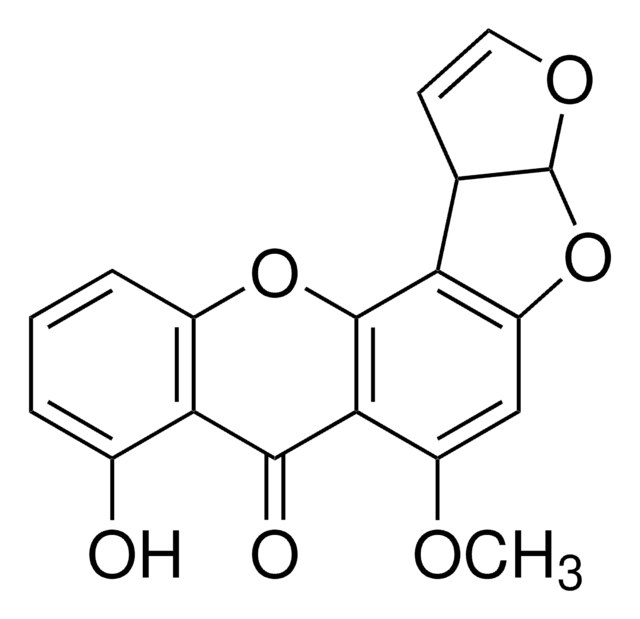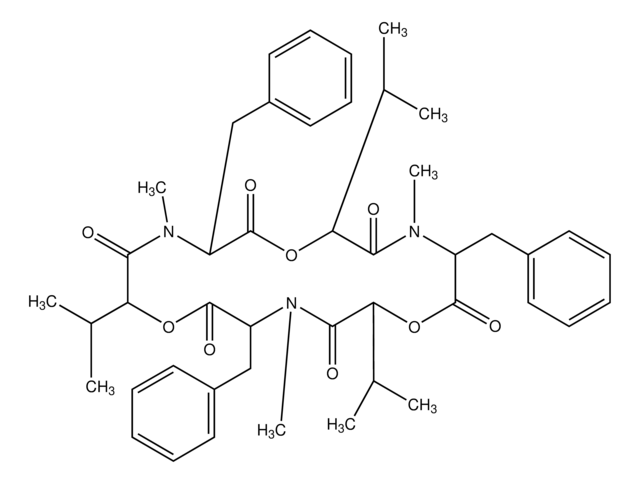S3255
Sterigmatocystin
powder, ≥98% (TLC)
Synonym(s):
3a,12c-Dihydro-8-hydroxy-6-methoxy-7H-furol[3′,2′:4,5]furo[2,3-c]xanthen-7-one
About This Item
Recommended Products
Quality Level
Assay
≥98% (TLC)
form
powder
color
yellow
storage temp.
−20°C
SMILES string
COc1cc2OC3OC=CC3c2c4Oc5cccc(O)c5C(=O)c14
InChI
1S/C18H12O6/c1-21-11-7-12-13(8-5-6-22-18(8)24-12)17-15(11)16(20)14-9(19)3-2-4-10(14)23-17/h2-8,18-19H,1H3
InChI key
UTSVPXMQSFGQTM-UHFFFAOYSA-N
Looking for similar products? Visit Product Comparison Guide
Biochem/physiol Actions
Signal Word
Danger
Hazard Statements
Precautionary Statements
Hazard Classifications
Acute Tox. 3 Oral - Carc. 2
Storage Class Code
6.1C - Combustible acute toxic Cat.3 / toxic compounds or compounds which causing chronic effects
WGK
WGK 3
Flash Point(F)
Not applicable
Flash Point(C)
Not applicable
Personal Protective Equipment
Regulatory Listings
Regulatory Listings are mainly provided for chemical products. Only limited information can be provided here for non-chemical products. No entry means none of the components are listed. It is the user’s obligation to ensure the safe and legal use of the product.
JAN Code
S3255-5MG:
S3255-1MG-PW:
S3255-5MG-PW:
S3255-10MG:
S3255-BULK:
S3255-50MG:
S3255-1MG:
S3255-VAR:
Certificates of Analysis (COA)
Search for Certificates of Analysis (COA) by entering the products Lot/Batch Number. Lot and Batch Numbers can be found on a product’s label following the words ‘Lot’ or ‘Batch’.
Already Own This Product?
Find documentation for the products that you have recently purchased in the Document Library.
Articles
Cancer research has revealed that the classical model of carcinogenesis, a three step process consisting of initiation, promotion, and progression, is not complete.
Our team of scientists has experience in all areas of research including Life Science, Material Science, Chemical Synthesis, Chromatography, Analytical and many others.
Contact Technical Service








